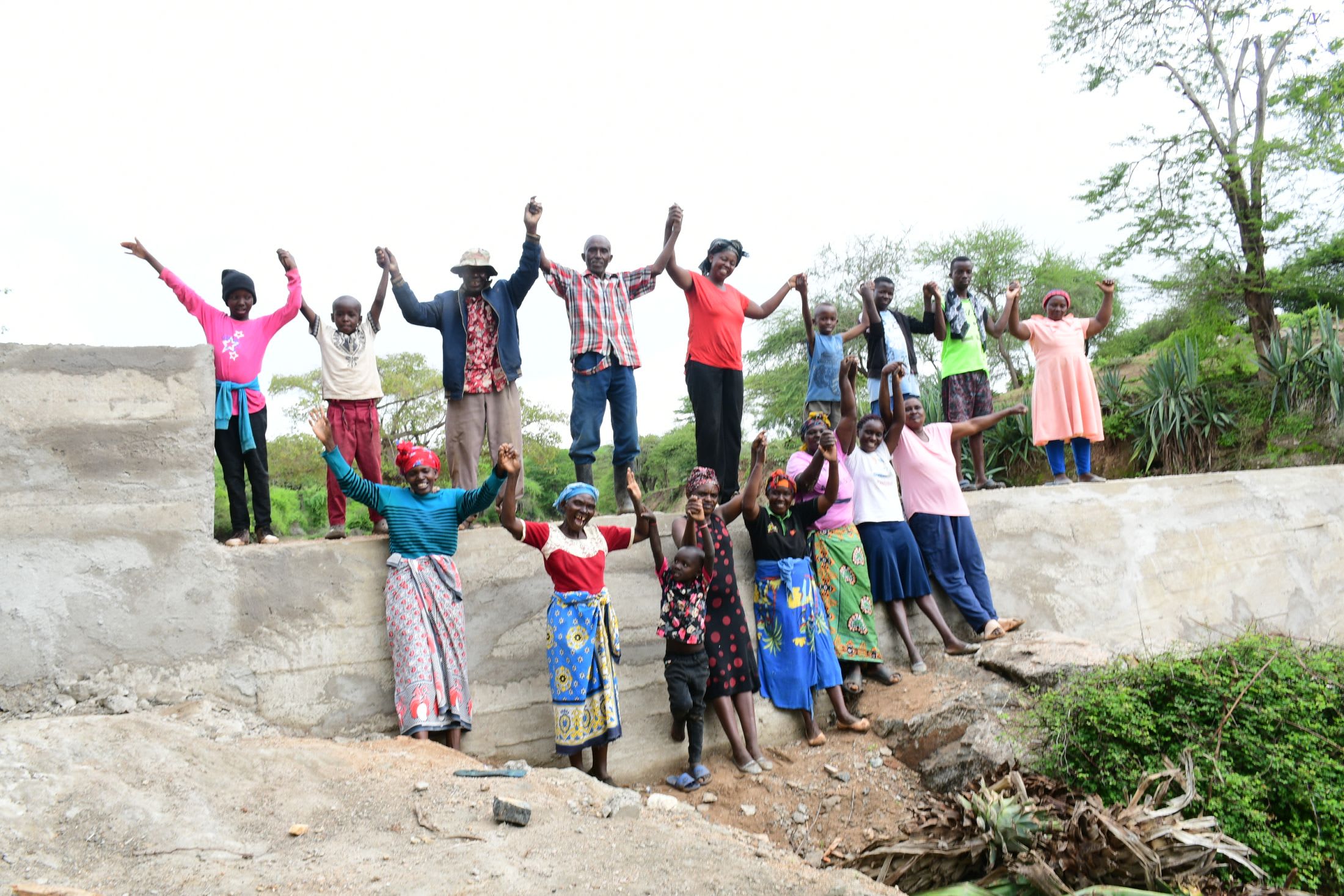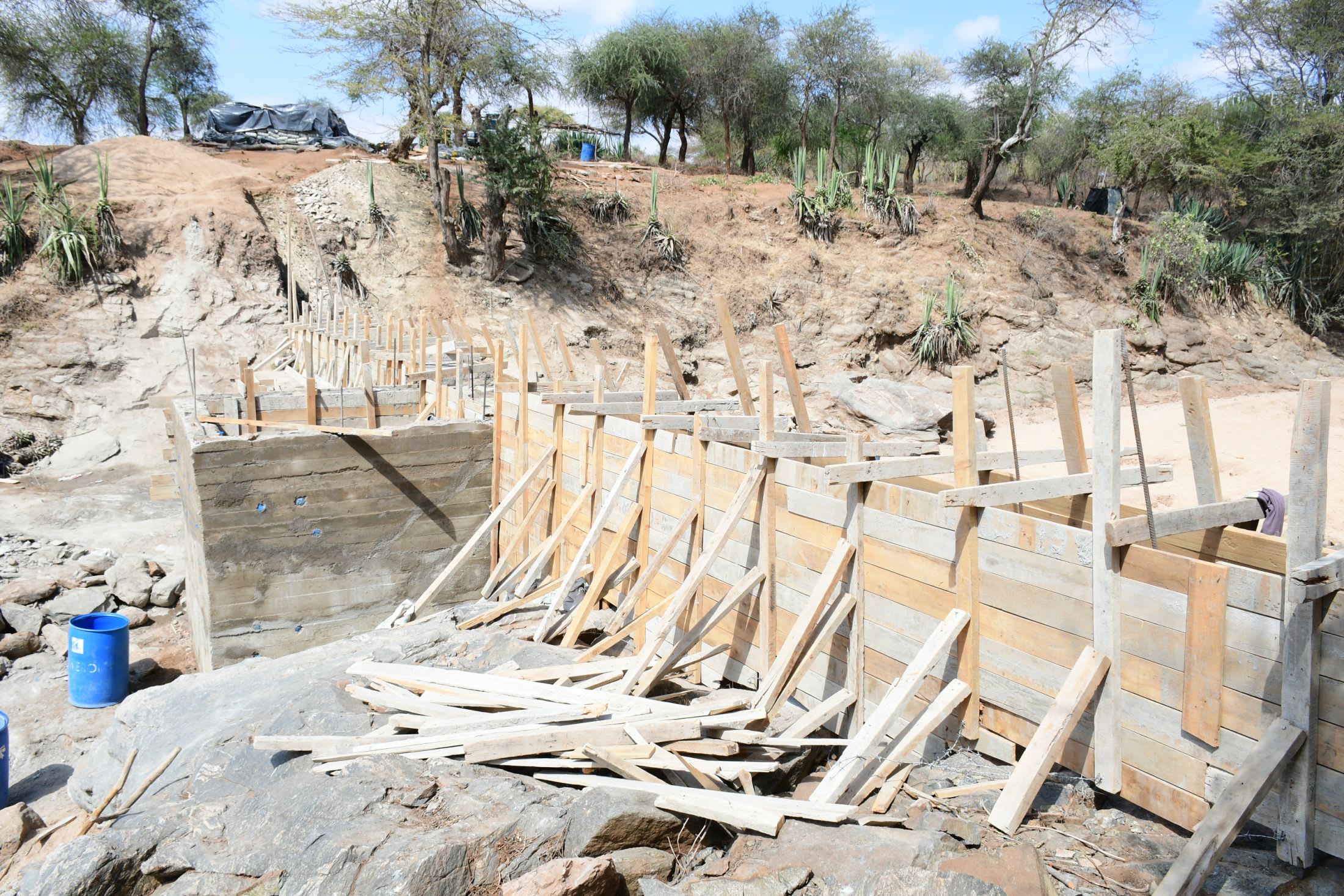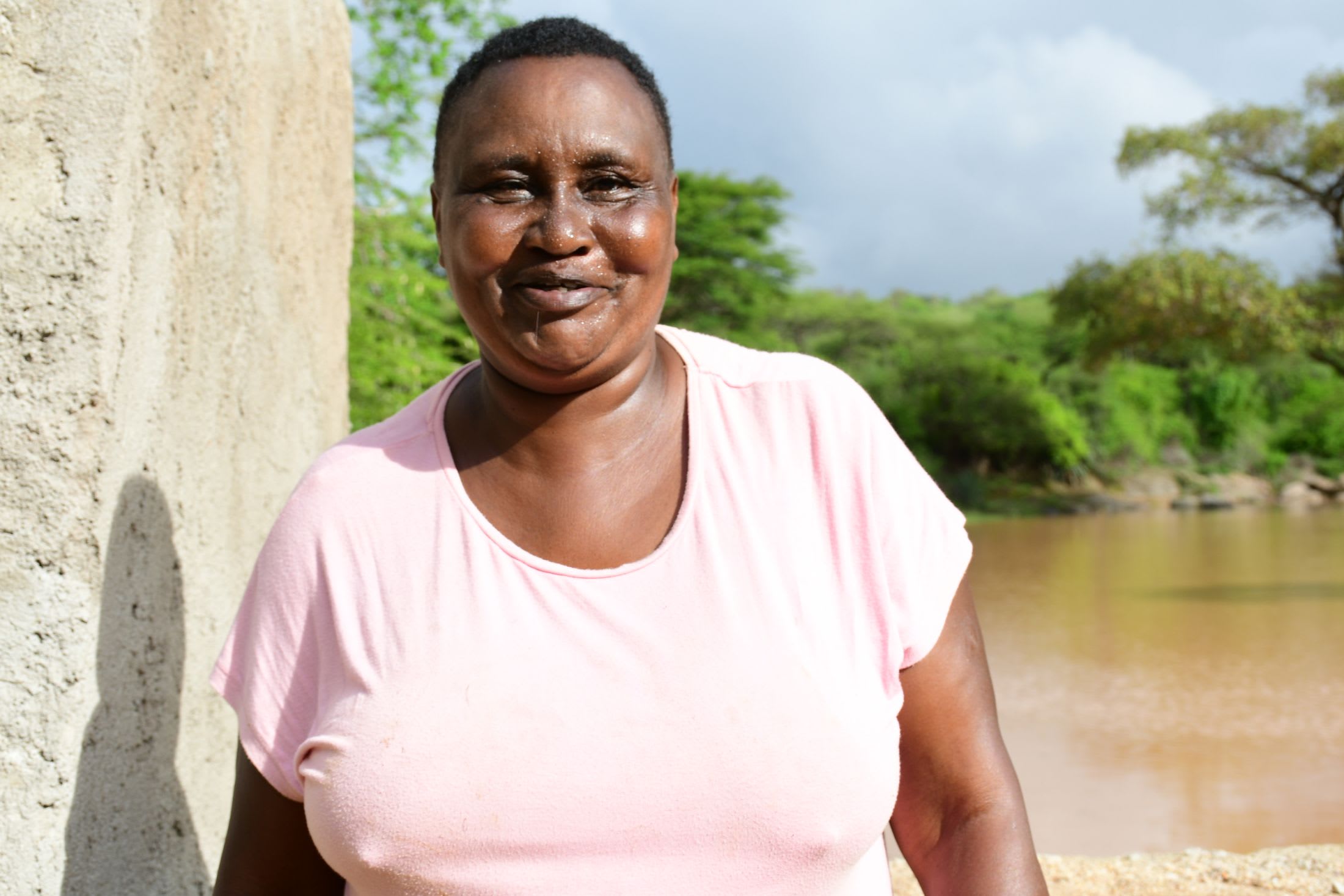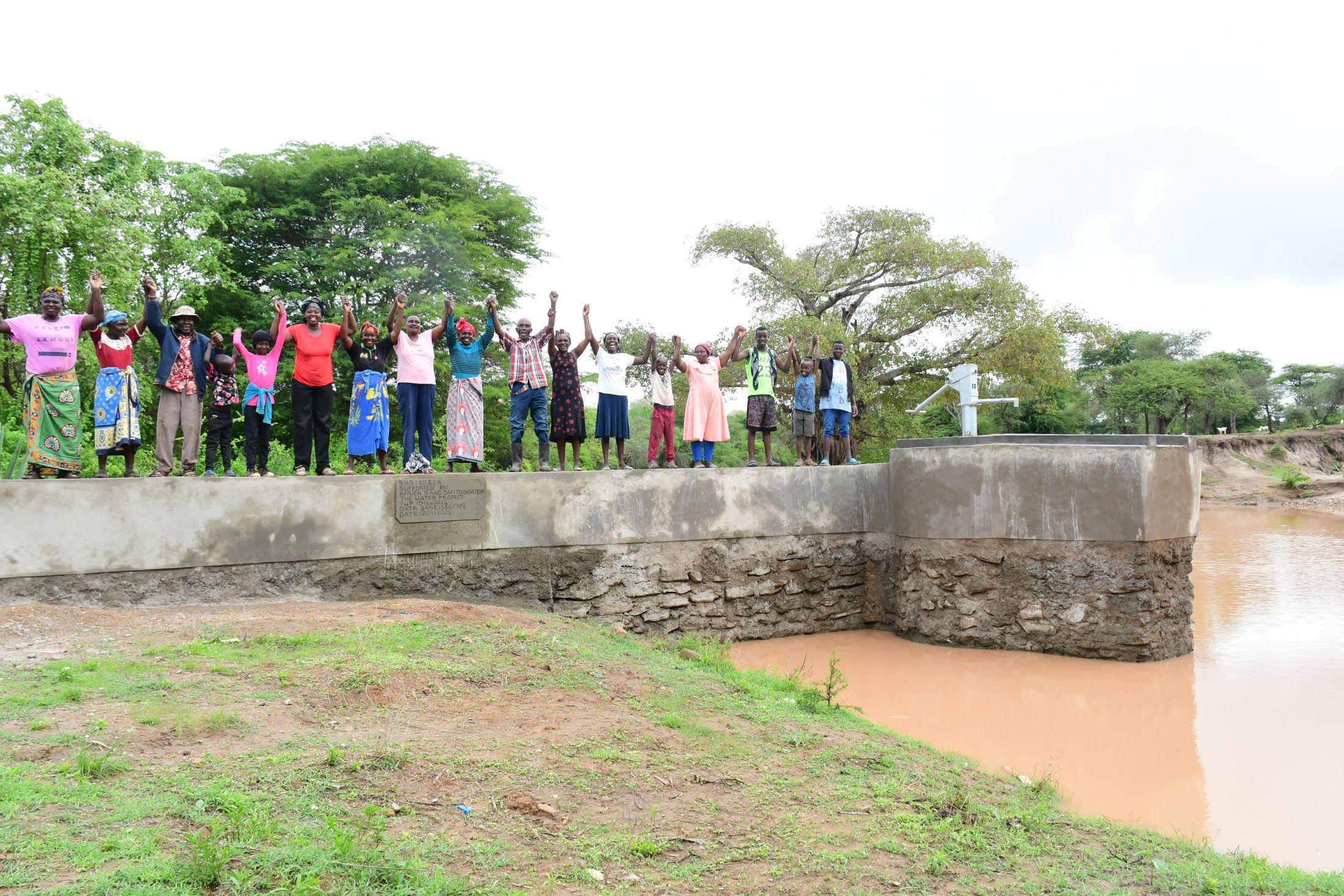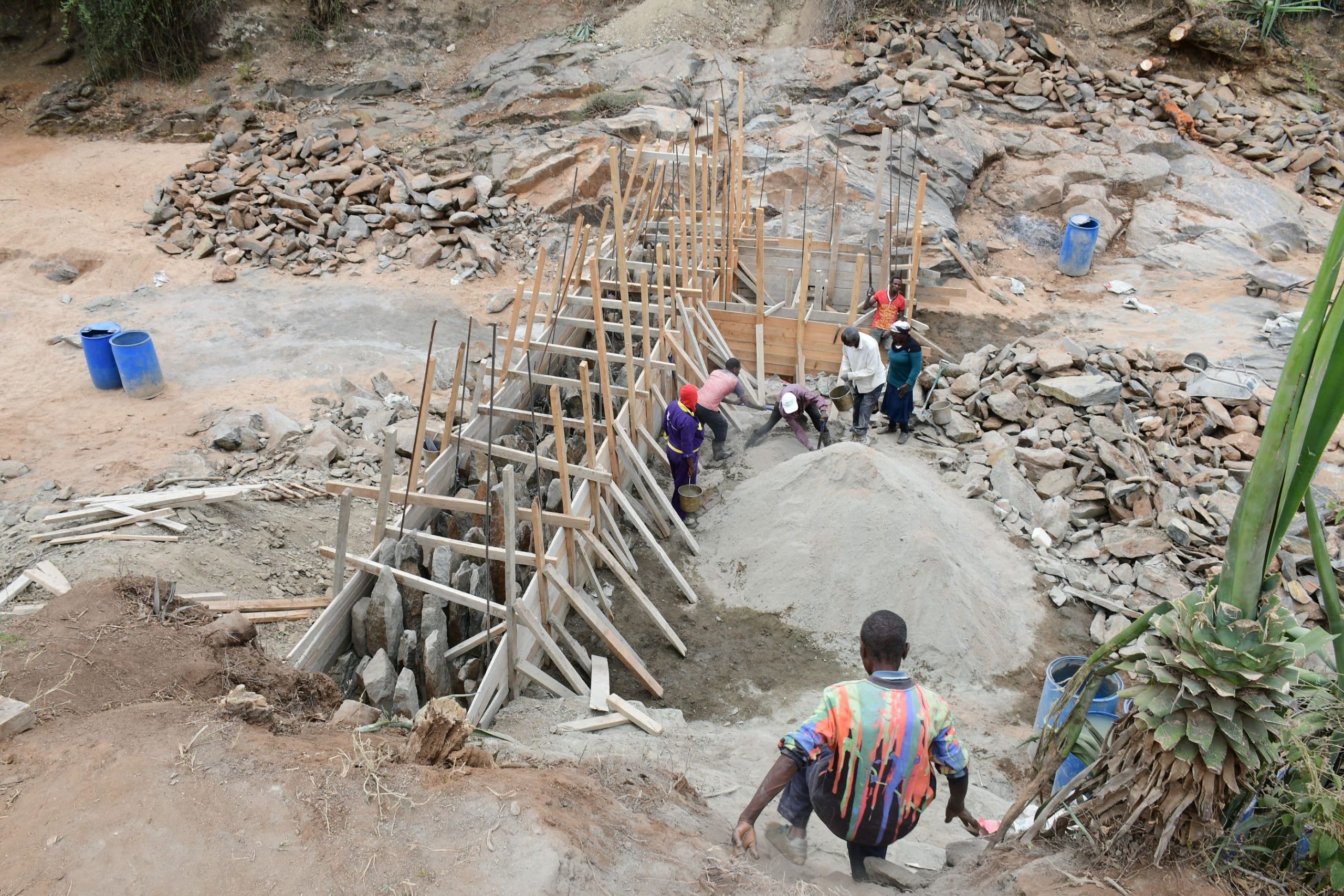In this primarily arid rural area, where rain is erratic at best, the 350 community members of Kilela struggle to access water daily. Their primary water source is a scoop hole that does not provide sufficient or safe water.

Field Officer Alex Koech said, "The people (mostly women and children) wake up at dawn to search for water from the seasonal Ndalani river. They walk for about 3 hours to the scoop hole at Ndalani River. They have to wake up that early; otherwise, the water at the scoop hole runs out, and they have to wait till it collects more water. The lack of water in the area has led to long queues at the water point, which at times leads to quarrels between the community members."
People in this community spend so much time collecting water that they sacrifice the time and energy they need to perform essential tasks, which leads to increased irritability at the overcrowded water source.
55-year-old farmer Christina Kyumbulo, seen below carrying water, shared, "Being a single mother with four children, I have to wake up early to fetch water for use at home. The water point is about four kilometers from my home; thus, I have to walk there in the morning when it is still dark, which exposes me to sex predators in the area. Fetching water is a dangerous affair [for me] because I no longer stay with my husband."

Long journeys alone can put people in harm's way, and once they get there, the scoop hole gets so deep that trying to find water can be dangerous.
"During the peak drought periods, the scoop hole is dug so deep and requires three people to fetch water. The scoop hole sometimes collapses, like during the last drought season when three women got injured after the scoop hole collapsed when they were inside. When the water point [is] set up, fetching water will be much easier and safer because it will be located close to my home," concluded Christina.

Children also make sacrifices. Crucial learning time evaporates as they contribute to collecting water for their families.
11-year-old James M., shown scooping water below, shared his experience. "My home is about two kilometers from here. When I arrive home, I am often sent to go fetch water at the scoop hole, which is exacting because of the long journey. The search for water is time-consuming and exhausting; thus, I cannot fully concentrate on my studies or get time to interact with friends."

"I have also developed diarrhea on several occasions, like last month when I had to skip school and stay at home while my parents sought treatment. The frequent absenteeism has negatively impacted my academic performance. The set up of a water point close to my home will ensure I have clean water to drink, and I will no longer spend several hours searching for water," he continued.
Not only do women and children have to travel extensive distances, risking their safety, but their health is also at risk, as James noted because the water is unsafe to consume due to contamination.
"The scoop hole is open to contamination from both the community members and their livestock. This exposes the residents to infections such as typhoid, amoeba, dysentery, diarrhea, and more," Alex continued.

"The implementation of the proposed sand dam project will hold enough water that can sustain the community throughout the dry season. Since the project will be set up near the community, the residents will no longer have to walk several kilometers searching for water. They will also acquire enough clean water to improve hygiene [and] sanitation in the area, thus eradicating water-related infections, such as typhoid, dysentery, amoeba, and more," concluded Alex.
The sand dam installation will also give Christina time to tend to her essential tasks like caring for her children and James time to focus on school. Instead of using all their energy to collect water, they will regain valuable energy for a chance at a brighter future.
Helping to solve the water crisis in this community will take a multi-faceted system. It requires the collaboration of the sand dam and a protected dug well. They will work together to create a sustainable water source that will serve this community for years to come.
The Proposed Solution, Determined Together...
At The Water Project, everyone has a part in conversations and solutions. We operate in transparency, believing it benefits everyone. We expect reliability from one another as well as our water solutions. Everyone involved makes this possible through hard work and dedication.
In a joint discovery process, community members determine their most advantageous water solution alongside our technical experts. Read more specifics about this solution on the What We're Building tab of this project page. Then, community members lend their support by collecting needed construction materials (sometimes for months ahead of time!), providing labor alongside our artisans, sheltering and feeding the builders, and supplying additional resources.
Water Access for Everyone
This water project is one piece in a large puzzle. In Kenya, Sierra Leone, and Uganda, we're working toward complete coverage of reliable, maintained water sources that guarantee public access now and in the future within a 30-minute round trip for each community, household, school, and health center. One day, we hope to report that this has been achieved!
Training on Health, Hygiene & More
With the community's input, we've identified topics where training will increase positive health outcomes at personal, household, and community levels. We'll coordinate with them to find the best training date. Some examples of what we train communities on are:
- Improved hygiene, health, and sanitation habits
- Safe water handling, storage & treatment
- Disease prevention and proper handwashing
- Income-generation
- Community leadership, governance, & election of a water committee
- Operation and maintenance of the water point

 Sand Dam
Sand Dam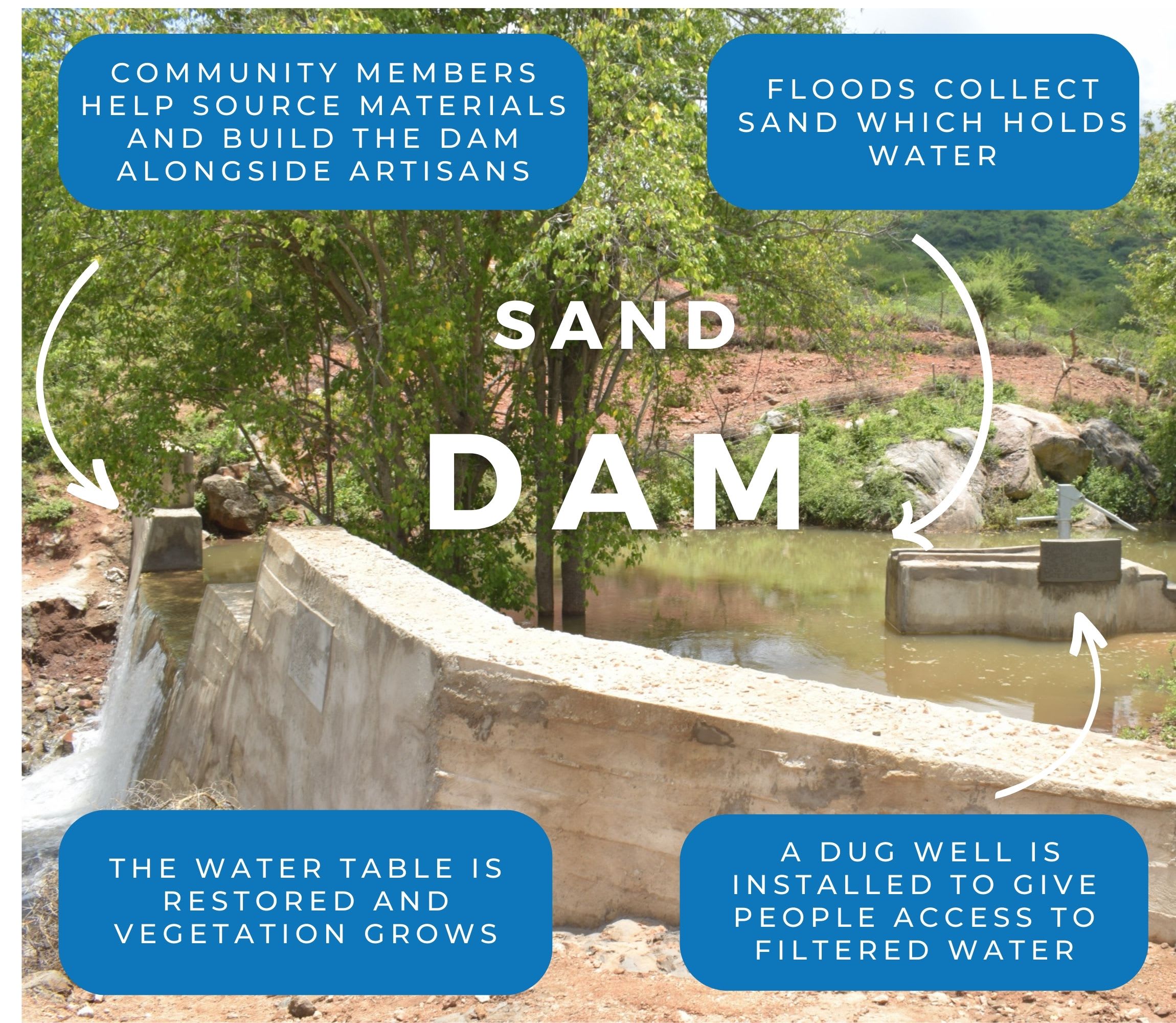
 Rehabilitation Project
Rehabilitation Project












